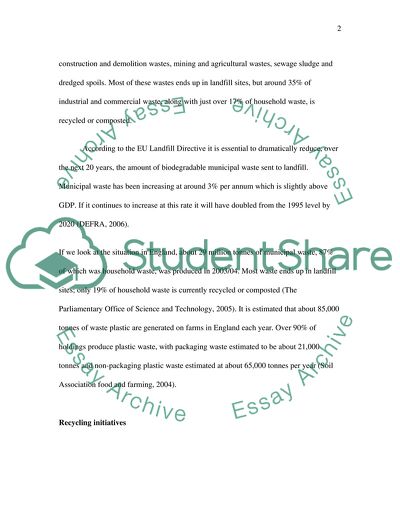Cite this document
(Legislation or Information: How to Encourage the UK Population to Recy Case Study, n.d.)
Legislation or Information: How to Encourage the UK Population to Recy Case Study. Retrieved from https://studentshare.org/environmental-studies/1704810-legislation-or-information-how-to-encourage-the-uk-population-to-recycle
Legislation or Information: How to Encourage the UK Population to Recy Case Study. Retrieved from https://studentshare.org/environmental-studies/1704810-legislation-or-information-how-to-encourage-the-uk-population-to-recycle
(Legislation or Information: How to Encourage the UK Population to Recy Case Study)
Legislation or Information: How to Encourage the UK Population to Recy Case Study. https://studentshare.org/environmental-studies/1704810-legislation-or-information-how-to-encourage-the-uk-population-to-recycle.
Legislation or Information: How to Encourage the UK Population to Recy Case Study. https://studentshare.org/environmental-studies/1704810-legislation-or-information-how-to-encourage-the-uk-population-to-recycle.
“Legislation or Information: How to Encourage the UK Population to Recy Case Study”. https://studentshare.org/environmental-studies/1704810-legislation-or-information-how-to-encourage-the-uk-population-to-recycle.


